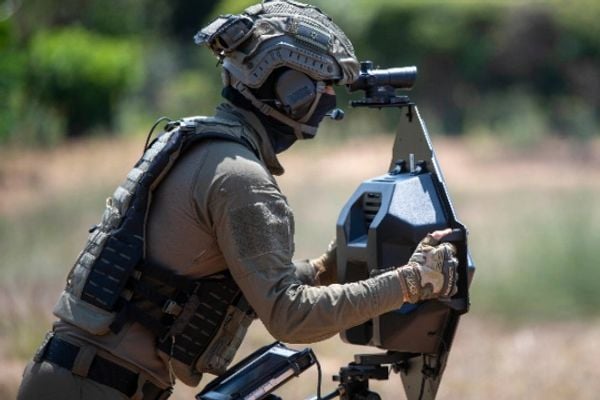“To see through walls sounds like magic or some imagination but what we have developed is based on a physical phenomenon,” said Amir Beeri, CEO of Camero-Tech.
By Sharon Wrobel, The Algemeiner
Seeing through walls and discovering what’s on the other side is the stuff of science fiction. But an Israeli company has developed technology that can do just that in order to save lives in dangerous situations.
Camero-Tech, an Israeli company that develops radio imaging technology, has released a device that would enable soldiers, intelligence and emergency personnel to see behind obstructions.
“To see through walls sounds like magic or some imagination but what we have developed is based on a physical phenomenon,” Amir Beeri, CEO of Camero-Tech told The Algemeiner.
The technology, developed in partnership with Israeli defense officials and engineers, is based on radio wave signals that can penetrate walls and reconstruct what is behind them into three-dimensional images.
The system, which can operate from a distance of more than 60 feet, creates images using artificial intelligence-based algorithms and signal processing. With the push of a button, a single operator can track the positions of individuals, whether moving or stationary, and determine whether the subject is an adult, a child or an animal.
“This is unique as we are using low frequencies in a very wide bandwidth, which enable the penetration of building materials on the one hand while we are not compromising on the resolution, on the other hand,” Beeri said. “Generally, there is a trade-off between resolution and frequency.”
The system has uses in critical rescue operations, drug raids, urban combat and high-risk arrests, Beeri said.
Beeri cited the 2017 earthquake in Mexico, when Camero-Tech’s system was used to help rescue workers search through rubble for buried victims.
The system has also been used in hostage rescue situations. Beeri recounted one example where a 19-year-old girl was kidnapped in Mexico and was kept on the ground floor.
“As negotiations continued the person that was with the hostage moved to the other room,” Beeri said. “That was a very specific moment when they were separated and then the forces breached in, saved and solved the situation.”
‘There is Nothing Like This’
Beeri founded Camero-Tech in 2004, together with Aharon Aharon, who moved on to head the Israel Innovation Authority and was the former general manager of Apple Israel.
The enterprise is part of Israel’s SK Group, a privately-held group of firms focused on defense and homeland security technology in shipping, small weapons and optical systems. The companies develop combat-proven technologies that grew out of Israel’s leading defense industry.
“We are working very closely with some users, including the IDF in order to customize the system to the real need in the field,” said Beeri, an electrical engineer who also served 14 years in Israeli intelligence.
In June, Camero-Tech introduced its newest addition to the family of 3D imaging systems, the Xaver 1000, which provides military forces, law enforcement agencies, first responders and intelligence units operating in hostile urban and disaster environments with the ability to see through walls.
“There is nothing like this in terms of the quality of the images,” said Beeri. He described the latest offering as less of a tactical tool, and one used more for surveillance and reconnaissance purposes.
Camero-Tech is only allowed to procure its systems to government agencies in countries green-lit by Israel’s Defense Ministry, and can’t sell to private companies or individuals, such as investigators.
